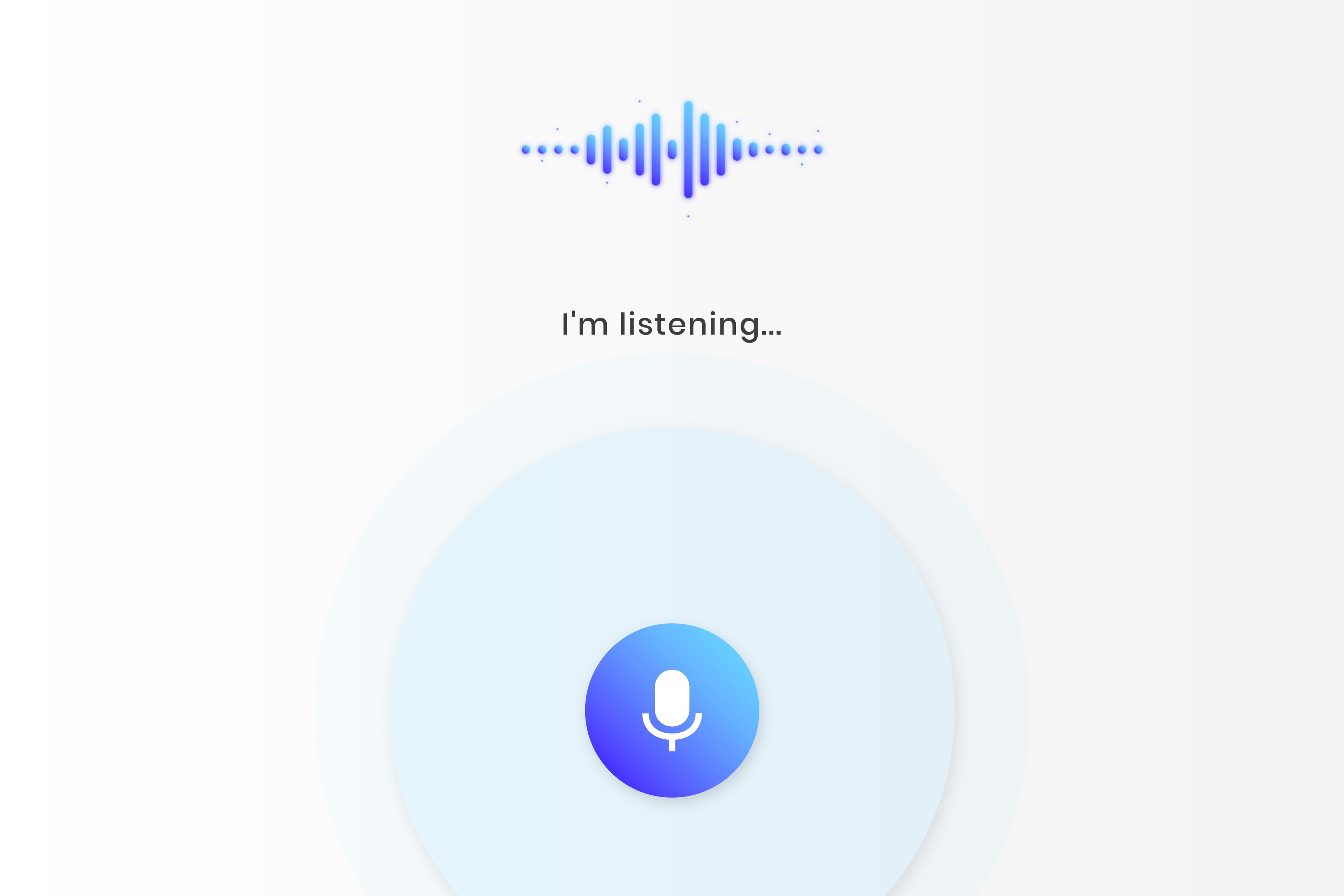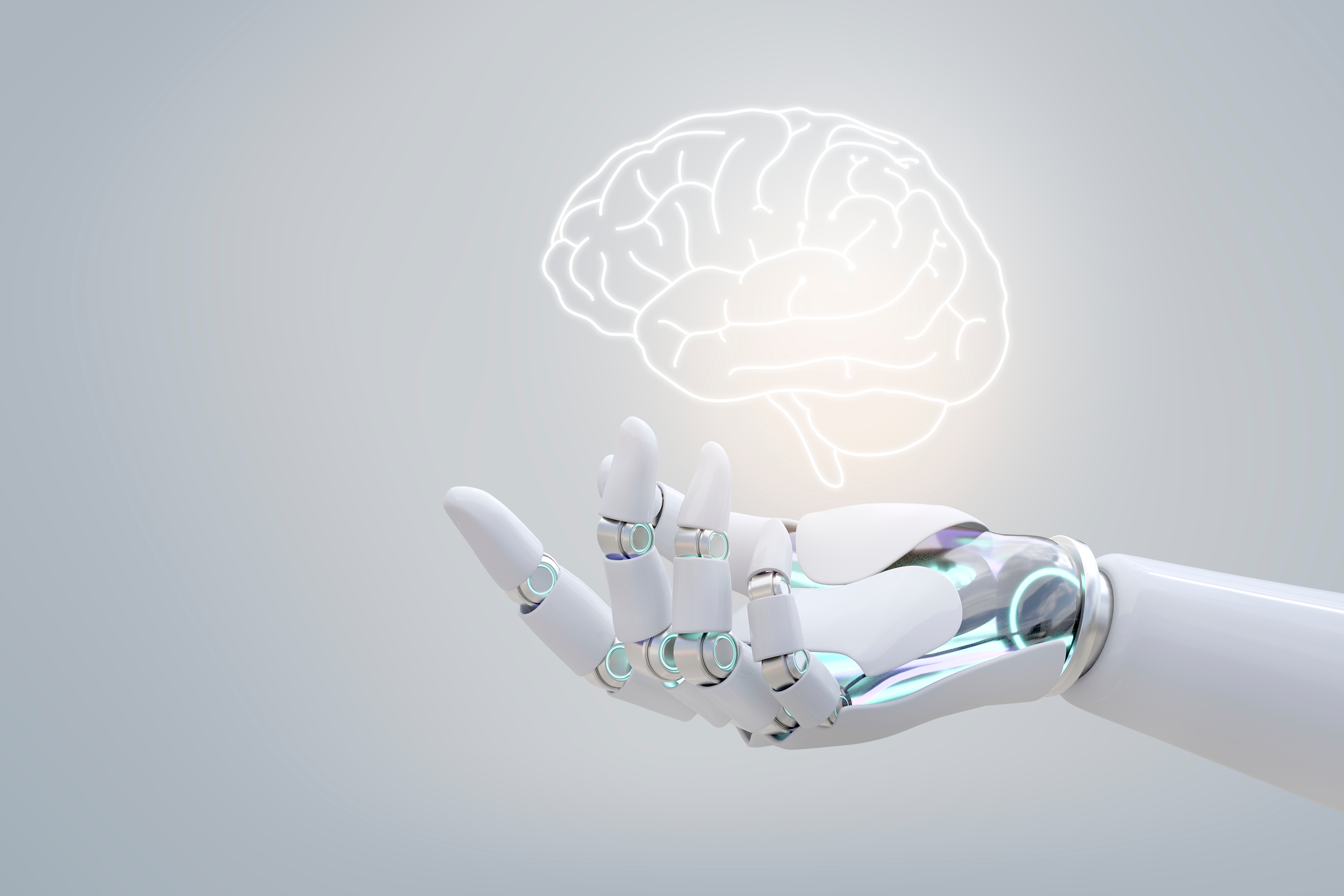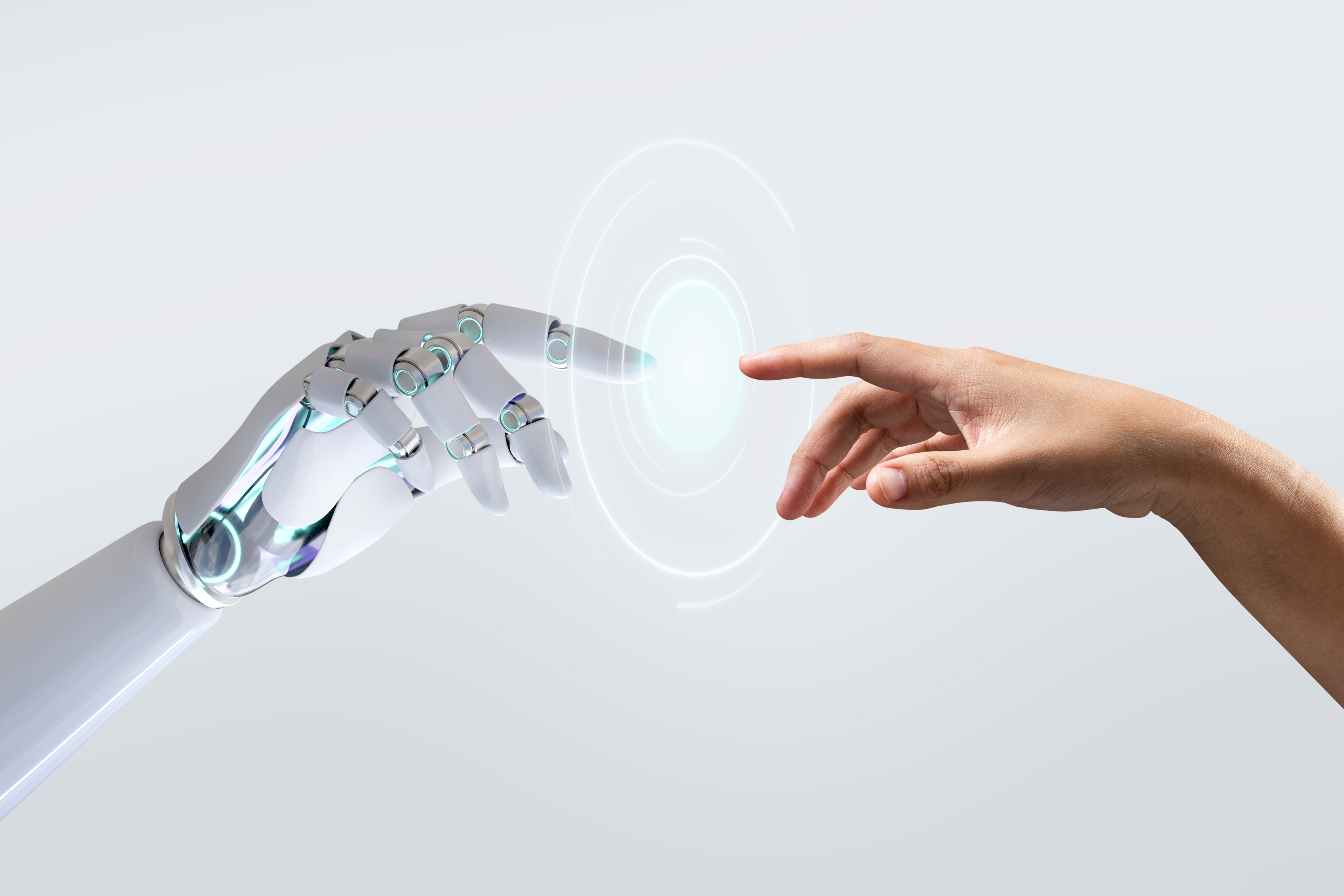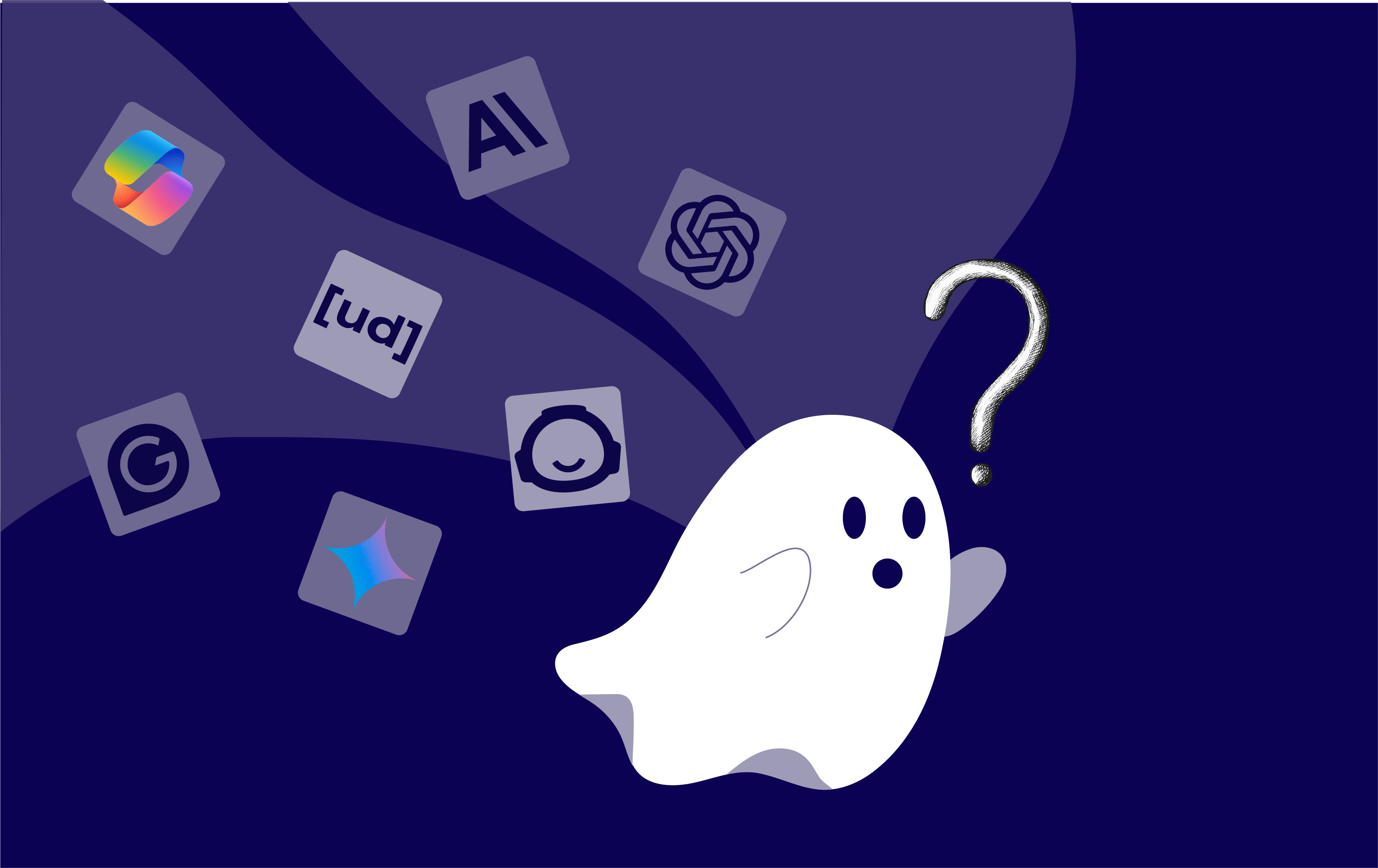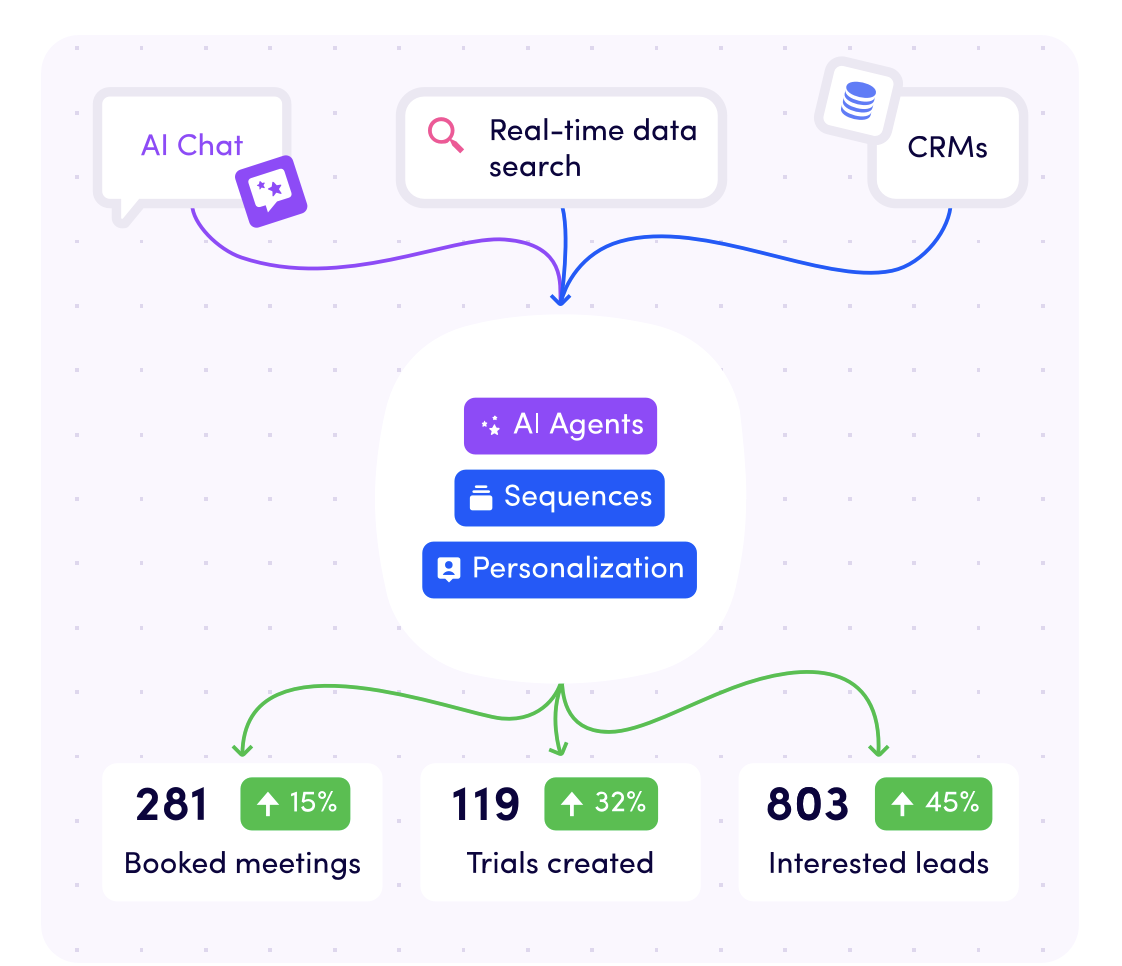AI Voices: The New Sound Of Innovation

In an age where technology rapidly evolves, AI voice generators stand out as a transformative innovation. This is reshaping how we interact with machines and each other. These sophisticated tools convert text into lifelike speech, offering unprecedented convenience and accessibility in multiple languages and styles.
Be ready to dive into the world of AI voice generators.
We will be exploring their workings, applications, benefits, and future potential while addressing the challenges and ethical considerations accompanying this groundbreaking speech technology.
Have a quick look at:
1. The emergence of AI voice generators
2. What exactly is an AI voice generator?
3. How AI voice generators work: A deep dive
4. Top AI voice generator applications
5. The pros and cons of AI voice generators
6. The future of AI voice generators
7. Want to learn more about AI?
The emergence of AI voice generators
AI voice generators are revolutionising communication across various sectors. These include virtual assistants like Siri and Alexa to high-quality voiceovers in audiobooks and videos.
They provide content creators with the ability to produce professional voiceovers and perfect voice recordings.
These advanced systems are capable of producing human-like speech. Which, can be applied to virtual assistants, customer service bots, and other marketing tools.
Its AI-powered version can mimic various accents, tones, and styles of speech with remarkable accuracy.
This technological advancement enhances user experience and opens up a wide range of possibilities in:
- Entertainment
- Education
- Personalised marketing
Why?
Because it is where the need for realistic & engaging audio content is crucial.
AI voice generators are expected to increasingly impact our daily lives.
They make interactions with digital devices easier and more efficient.
What exactly is an AI voice generator?
AI voice generators are transforming how we interact with technology by turning written text into lifelike spoken words.
These sophisticated tools use artificial intelligence.
These are machine learning and natural language processing, used to create speech that sounds remarkably human.
They don't just read words.
They capture the nuances of human speech, such as tone, accent, and emotion, making the voices sound natural and engaging.
It's like an extensive library with a collection of voices selected to improve customer interactions in real time.
Imagine writing a sentence and hearing it spoken back to you in a voice that could easily be mistaken for a real person.
This is achieved by breaking down the text into small sounds and using advanced algorithms to piece them together smoothly.
The result is a voice that can change pitch, speed, and expressiveness, just like a human speaker.
AI voice generators are everywhere – in virtual assistants like Siri and Alexa, in customer service chatbots, in audiobooks, and even in entertainment.
They make technology more accessible and user-friendly, offering cost-effective voiceovers and enhancing audio experiences for everyone, including those with visual impairments.
And of course, you can choose from a range of voice options for the right digital experiences.
As these technologies develop, they will become more integrated into our daily digital interactions, making our communication with machines more natural and seamless.
How AI voice generators work: A deep dive
AI voice generators operate through a combination of advanced technologies, each playing a crucial role.
1. Machine Learning and Neural Networks
- Data Processing: These systems learn from extensive datasets of recorded human speech, analysing patterns and variations to understand how humans talk.
- Pattern Recognition: Neural networks identify and replicate the intricate details of speech, such as pitch, tone, and rhythm, choosing the target voice and enabling the generation of realistic voices.
- Continuous Improvement: Machine learning algorithms constantly refine their understanding and output by incorporating new data, ensuring the voice generation becomes more accurate over time.
2. Natural Language Processing (NLP)
- Understanding Context: NLP helps the system grasp the meaning and context of the input text, allowing it to produce speech that sounds appropriate and coherent.
- Handling Nuances: NLP can interpret subtle aspects of language, such as sarcasm or emphasis, and adjust the speech output to reflect these nuances accurately.
- Language Flexibility: This technology enables AI voice generators to work with multiple languages and dialects, broadening their applicability and effectiveness.
3. Text-to-speech (TTS) Algorithms
- Text Analysis: TTS algorithms break down written text into phonetic components, preparing the raw material for speech synthesis.
- Sound Synthesis: These algorithms then convert the phonetic components into audible speech, piecing together sounds smoothly to create natural sentences.
- Voice Customisation: TTS allows for adjustments in voice characteristics, such as speed, pitch, and volume, providing flexibility to suit different applications and user preferences.
By integrating these technologies, AI voice generators produce speech that is accurate, clear, expressive, and human-like.
Top AI voice generator applications
AI voice generators have become essential tools in various fields, offering lifelike and engaging speech capabilities.
These advanced systems are now widely used in numerous applications and file formats, making interactions with technology more natural and intuitive.
Let's delve into the top applications of AI voice generators to understand their impact and versatility across different industries:
- Murf.ai: AI-driven voice cloning and speech synthesis.
- Elevenlabs.io: Platform for AI-powered speech synthesis and voice technologies.
- Play. ht: Converts texts into human-like speech for audio content.
- Speechify: Text-to-speech software for enhancing productivity and accessibility.
- Resemble.ai: Provides AI-generated synthetic voices and voice cloning.
- Typecast.ai: AI platform for creating realistic voiceovers and audio content.
- Veed.io: Online video editing platform with AI-powered voiceover capabilities.
- Deepgram: Speech recognition and transcription platform using AI.
- Lovo.ai: Offers AI voiceover services and synthetic speech generation.
- Voice booking: Voiceover agency providing professional voice talent for projects.
- Canva: Graphic design and video editor platform that includes tools for creating audiovisual content.
- Synthesia.io: AI-powered platform for creating synthetic videos with automated voiceovers.
The pros and cons of AI voice generators
As with any AI tool, this one also comes with some advantages and disadvantages to consider.
The main advantages of AI voices for an audio guide:
-
Affordability: AI voices are cost-effective compared to human voice actors, making them ideal for projects on a budget.
-
Consistent Script Delivery: AI ensures accurate pronunciation and fidelity to the script, eliminating errors common with human narrators.
-
Quick Production Turnaround: AI allows for rapid generation of audio in multiple languages and accents, though some manual editing may be necessary for optimal quality.
The main disadvantages of AI voices for an audio guide:
-
Emotional Expression Limitations: AI voices struggle to convey nuanced emotions, lacking the depth and impact of human narration.
-
Perception Challenges: Audiences may subconsciously prefer human voices over AI-generated ones, affecting engagement and trust.
-
Pronunciation and Editing Issues: AI may misinterpret punctuation or struggle with foreign language pronunciations, requiring time-consuming corrections and adjustments.
Also, there are challenges and ethical considerations that you should keep in mind.
These primarily revolve around deep fakes and privacy concerns:
- Deepfakes: AI can create convincing fake audio files, posing risks such as impersonation, fraudulent messages, and misinformation spread.
- Privacy Concerns: Collection, storage, and use of voice data for AI training raise privacy issues regarding consent, transparency, and data protection.
The Future of AI Voice Generators
The future of AI voice generators looks bright, with exciting innovations set to elevate voice realism and emotional expression to new heights.
Integration with video editing and scriptwriting tools will simplify content creation, empowering creators in industries such as explainer videos and training materials to craft compelling multimedia effortlessly.
Ethical considerations will shape this future landscape profoundly.
Strong measures are essential to protect against misuse and maintain user privacy, addressing concerns about data security and the authenticity of audio.
Evolving regulatory frameworks will further mitigate risks like deepfakes, ensuring trustworthy digital interactions.
Looking ahead, advancements in AI algorithms will enhance voice customisation, offering precise control over pitch, tone, and pronunciation.
This flexibility will meet diverse needs, from creating character voices for video games to enhancing educational experiences.
Faster voice generation and better audio quality will make AI voice generators more useful in speech tools and interactive apps, fitting smoothly into everyday tasks.
As these technologies progress, AI voice generators will become essential in various fields like entertainment, education, customer service, and more.
Want to learn more about AI?
You’re in the right place!
AI is a fascinating field and one that is building tremendous traction across the business landscape.
As technology advances, artificial intelligence applications for business are becoming more plausible in everyday practice.
AI is being used to save time and increase productivity outputs over many different roles and sectors.
This course will help you and your team boost productivity with AI solutions and make data-driven decisions for the future.
6 Modules | 24 lessons | 24 videos | 6 tests | 6 exercises
- Module 1: AI and Machine Learning Fundamentals
- Module 2: AI business strategy
- Module 3: GenAI for text: ChatGPT and prompt engineering
- Module 4: GenAI for design: text prompts and visual communication
- Module 5: AI for productivity
- Module 6: AI-powered predictive insights
FAQ
What are AI voice generators and how do they work?
AI voice generators use artificial intelligence to convert written text into lifelike voices. They leverage advanced algorithms and machine learning to mimic human voices, offering a cost-effective solution for audio production across various industries.
Can AI-generated voices replicate human emotions effectively?
While AI voice generators are improving in realism, they still struggle to convey nuanced emotions convincingly. Human voice actors are often preferred for content requiring high emotional expression and authenticity.
What are the advantages of using AI voice generators in audio projects?
AI voice generators provide scalability and efficiency in producing audio content, supporting applications such as audiobooks, video narration, and automated customer service messages. They offer cost savings compared to hiring human voice actors.
What are the privacy concerns associated with AI voice generators?
Using AI voice generators involves collecting and processing voice data, raising privacy issues regarding consent, data storage, and potential misuse. Implementing strict data protection measures and obtaining user consent are essential.
How do AI voice generators handle custom voices and accents?
AI voice generators offer options for customising voices, including accents and pronunciation rules. They can generate audio in multiple languages and accents, though adjustments may be needed for optimal accuracy.
What are the challenges and limitations of AI voice generators?
Challenges include the difficulty in replicating subtle emotions, potential misuse for creating deepfakes or fraudulent content, and the need for careful editing to ensure quality. Continuous advancements aim to address these limitations over time.
Can AI voice generators handle background noise in audio recordings?
AI voice generators can mitigate background noise to some extent, depending on the platform's features and the quality of the input audio. Advanced algorithms can help reduce noise interference for clearer voice outputs.
Categories
- Business & Innovation (83)
- Growth & Marketing (72)
- Artificial Intelligence (52)
- Data & Analytics (16)
- Case studies (10)
- Project Management (10)
Related articles
Latest articles
ChatGPT Search Unveiled: Should You Make The Switch Now?
Picture this: You’re no longer just “searching” the web—you’re...
Shadow AI Explained: How to Harness Hidden AI Without the Risks
Picture this: your team is under pressure to deliver results—fast....
The 33 best AI tools for commercial teams
The tools are split into 2 categories The best AI tools for your...
B2B Growth Blueprint: How to Drive Sales and Build Strong Partnerships
In today’s fast-paced world, B2B companies are like ships...




